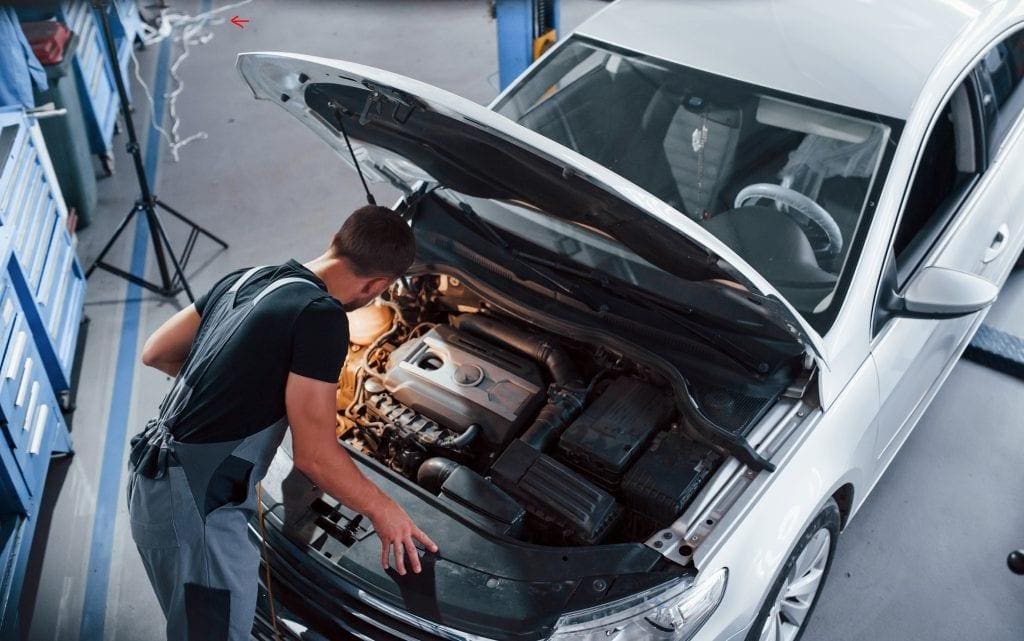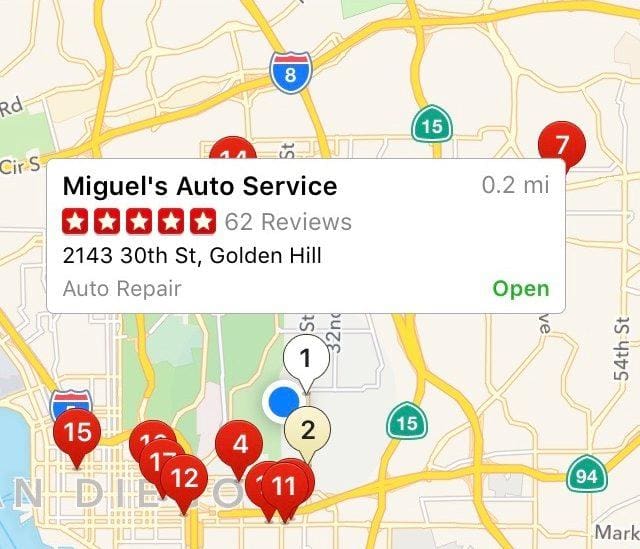How to Find an Auto Mechanic That You Can Trust

Contents
Introduction
At Klipnik, we believe that buying a used car is one of the smartest — and easiest — ways to save money. It protects you from the #1 car ownership expense: depreciation. The trade-off is that, in most cases, your used car purchase is no longer covered by a factory warranty. And that means you are stuck paying any repair bills out of your own pocket.
That may sound scary. But it doesn’t have to be. All you need is a knowledgeable mechanic that you can trust.
Having a good mechanic can not only give you peace of mind but also save you thousands of dollars in repairs over the life of your car. So it’s important to choose wisely. That’s why we’ve put together these tips for finding the best auto mechanic near you.
Dealerships vs. Independent Repair Shops
If your car is no longer under its factory warranty (typically after 3 years or 36k miles), then we recommend that you stop taking it to the dealership for service or repairs. That’s not a slight to any dealership technicians. They are typically excellent. But dealerships tend to have much higher overhead costs than independent repair shops do, and therefore they charge higher prices for the same work.
This price difference is often clearly reflected in the dealership’s hourly labor charges for repairs. If you want to check for yourself, just call up the dealership service center and ask what their hourly labor rate is. Then compare that to a local repair shop. You may be surprised at how different they are.
Note, though, that most independent repair shops do not provide the amenities that a dealership does, such as loaner cars or plush waiting rooms. So if those are important to you, you might be better off sticking with the dealer.
Steps to Finding a Good Mechanic

Find a Specialist in the Make of Your Car
Modern cars are complex machines. Keeping them running in top form requires someone who has not only a thorough understanding of their internal systems but oftentimes specialized diagnosis tools and equipment as well. To ensure you’re getting the best service, we recommend finding a mechanic who specializes in the make of your car (e.g. Ford, Honda, Volkswagen, etc.).
Usually you can find this information on a repair shop’s website — or perhaps even in its name. For example, if you drive a Lexus in the Los Angeles area, you might want to check out Lextech, a highly rated Lexus specialist in the Mt. Washington neighborhood.
If you can’t find a specialist for the make of your car, the next best thing is to find a shop that focuses on a small number of automotive manufacturers. For example, in the Seattle area, Pacific Rim Automotive specializes in Japanese brands, so they would be a good option for someone driving a Honda or a Toyota.
Having a specialist looking after you car means there’s much less of a chance that the shop will misdiagnose an issue, which can lead to needless repairs and/or repeat visits to address the same problem.
Read Online Ratings and Reviews
Once you’ve narrowed your search to independent repair shops that specialize in your brand of car, the next step is to check online review sites such as Yelp or Google.

When you’re reading reviews, make sure to check how recent they are. It’s possible that older reviews are no longer relevant. Also look to see what sorts of complaints customers have had. Were they based on the quality of the work? Or some other, perhaps trivial matter, such as a scheduling problem? Remember that what you’re looking for, first and foremost, is quality work on your car.
If you can’t find many reviews on Yelp or Google, another option is to look for related posts in automotive forums. Typically a Google search for something like “good BMW mechanic Denver” will bring these up (here’s an example). Online forums are not quite as user friendly as Yelp, but if you read through the posts you can often find some good leads.
Once you’ve found a repair shop that seems promising, try Googling its name and looking for more information about it. This should lead you to its Google reviews, which are worth a look. Also be on the lookout for any warning signs, like complaints about the shop to the Better Business Bureau (BBB), which would be cause to keep looking.
Check Out the Shop In Person
After identifying one or two good mechanics in your area, the next step is to investigate a little further just to make sure you have a good fit. You can do this by paying the shop a visit — if not in person, then at least online using Street View in Google Maps.
Probably the most important consideration at this point is the location. Is it convenient to your home or your workplace? Is it near transit lines? Remember, if you choose an independent mechanic (rather than the dealer), then you’ll likely be on your own for transportation to and from the shop while your car is out of service. Also look to see if there are places nearby where you could hang out while waiting for something quick, like an oil change.
Additionally, check out the cars waiting at the shop for service. Are they similar in age and condition to your car? If not, then this may not be the best shop for you.
If you want to go the extra mile, check out the repair shop lobby and introduce yourself to the receptionist. Ask how long they’ve been in business and how things are going. Look for their technicians’ Automotive Service Excellence certifications, which are normally framed and hung on the wall.
Above all, make sure this is a place that makes you feel comfortable and welcome.

Give Your New Mechanic a Trial Run
There’s no need to wait until you have a major mechanical issue to start looking for a new mechanic. In fact, we recommend finding a good mechanic before you even buy a used car. Most offer pre-purchase inspections where they give the car a thorough evaluation before you buy it to make sure you don’t end up with a lemon.
Even if your car doesn’t need any repairs, try taking it in for its next scheduled oil change. This is an excellent way not only for you to get to know a new mechanic but also for a new mechanic to get to know you and your car. Make sure each step of the process — from making the appointment to drop off, pickup, and payment — all go to your liking. The very best mechanics will take the time to walk you through exactly what was done to the car and what it may need in the future.
With something simple like an oil change, the stakes are low, so if you feel that you’re not getting the service you want, it’s easy to move on to another mechanic the next time.
The Bottom Line
We’ve all read about — or perhaps even experienced — car repair nightmares. Fixes that won’t take. Repair bills spiraling out of control. Living in fear of that next strange noise coming from under the hood. It’s a major reason that people continue to buy new cars, despite the excessive costs.
However, finding a good mechanic can change all that, transforming your car ownership experience from one of fear and trepidation to one of confidence and joy. And with these tips at your disposal, it should be easier than ever to find one.